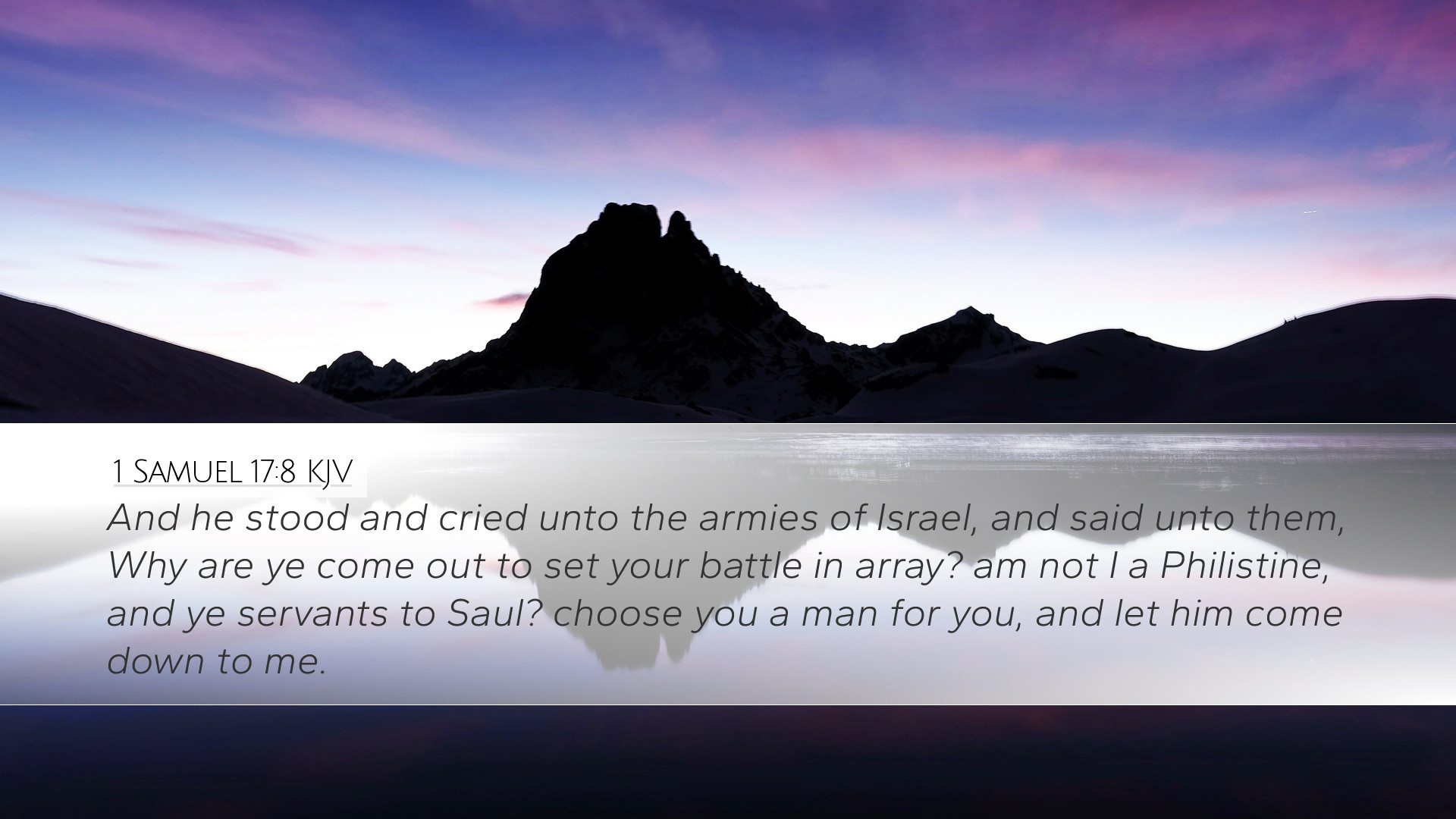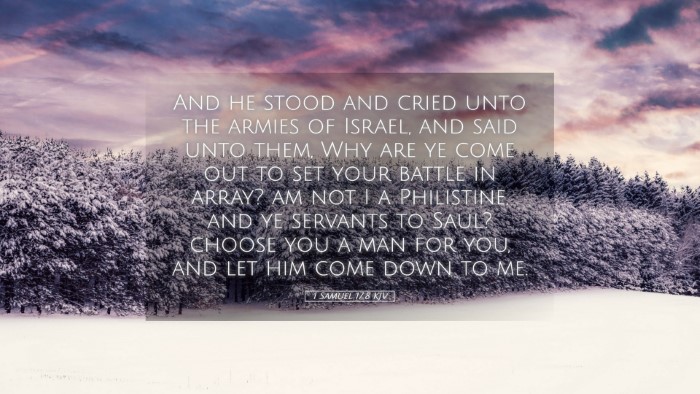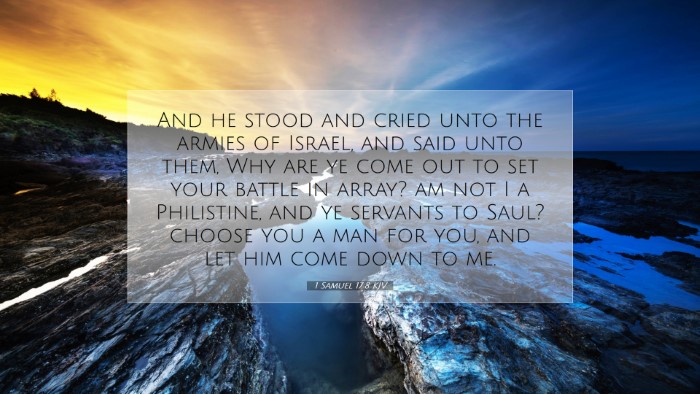Commentary on 1 Samuel 17:8
Verse Text: "And he stood and cried unto the armies of Israel, and said unto them, Why are ye come out to set your battle in array? am not I a Philistine, and ye servants to Saul? choose you a man for you, and let him come down to me." (1 Samuel 17:8, KJV)
Introduction
The account of Goliath's challenge to Israel in 1 Samuel 17 is a foundational narrative that reflects key themes of faith, fear, and divine providence. In this verse, we witness Goliath, the formidable giant of Gath, taunting the Israelite army, which serves to heighten the drama of this iconic battle. Insights from various public domain commentaries offer a deeper understanding of the theological and historical implications of Goliath's words.
Exegesis and Context
According to Matthew Henry, this verse marks the beginning of Goliath's challenge and encapsulates the tension between faith in God and fear of man. The Philistine's question, "Why are ye come out to set your battle in array?" reveals his disdain for the Israelites and challenges their courage. Henry emphasizes the psychological warfare being waged, as Goliath's taunts serve to intimidate the Israelite soldiers and provoke a crisis of faith.
Historical Background
Adam Clarke elaborates on the historical context of this confrontation. Goliath is presented not only as a physical threat but as an embodiment of the Philistine's contempt for Israel’s God. Clarke notes that Goliath’s stature—a staggering six cubits and a span—symbolizes the overwhelming odds the Israelites perceive against them. This encounter signifies a pivotal moment in Israel's history, where direct challenges to God’s support and sovereignty are presented through the lens of military might.
Theological Implications
Albert Barnes points out the theological significance of Goliath's taunts in light of God's covenant with Israel. Goliath dismisses the Israelite soldiers as mere "servants to Saul," reflecting a misunderstanding of their true identity as the chosen people of God. Barnes asserts that this moment underscores a critical battle not just against physical enemies, but against the very ideologies that challenge the sovereignty of God. The verse highlights a theme of identity, contrasting human perception against divine calling.
Personal and Spiritual Applications
This verse serves as a reminder for pastors and theologians to explore how modern believers face their own "Goliaths." The challenge here isn't purely physical; rather, it is about facing spiritual opposition and doubts. Henry encourages readers to consider their reaction to life's challenges—whether grounded in faith or overshadowed by fear. The response of the Israelites can serve as a mirror, prompting reflection on the necessity of faith in God's power in the face of daunting trials.
The Role of Leadership
Considering Saul's position, this verse reveals much about leadership. Barnes notes that the king, who was initially chosen for his height and military prowess, is now paralyzed by fear. This dynamic demonstrates the importance of spiritual leadership and its impact on the morale of God's people. Leadership rooted in faith can inspire courage, while fear and hesitance can lead to paralysis in action. It emphasizes the need for leaders to trust in God and encourage those they lead to do the same.
Christological Perspective
Interpreting this text through a Christological lens, believers may see parallels with Christ as the ultimate champion against sin and evil. Just as David would confront Goliath, Christ confronted sin and death on behalf of humanity. Clarke implies that the victory found in David over Goliath serves as a foreshadowing of Jesus' triumph, making this narrative relevant in discussing faith in the face of seemingly insurmountable challenges.
Conclusion
In conclusion, 1 Samuel 17:8 is not merely a historical record of a battle; it encapsulates the profound spiritual truths about identity, leadership, faith, and divine sovereignty. The interplay between fear and faith is a timeless theme that resonates in the hearts of believers today. Through insights gleaned from established commentaries, this verse invites deeper reflection and application in the lives of pastors, theologians, and laypeople alike. As they navigate their own Goliaths, may they find strength in the God of Israel who fights for His people.


